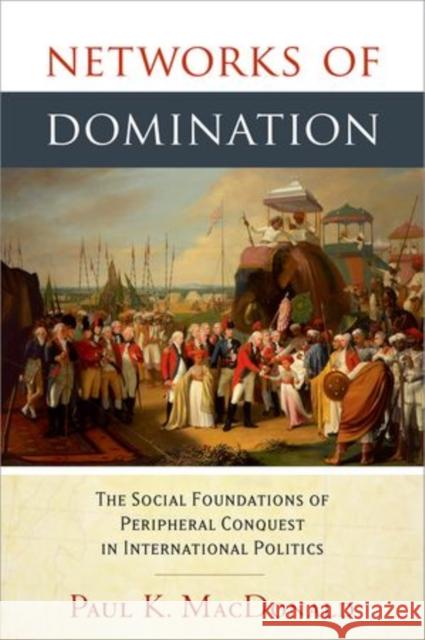Networks of Domination: The Social Foundations of Peripheral Conquest in International Politics » książka
topmenu
Networks of Domination: The Social Foundations of Peripheral Conquest in International Politics
ISBN-13: 9780199362165 / Angielski / Twarda / 2014 / 336 str.
In the nineteenth century, European states conquered vast stretches of territory across the periphery of the international system. Much of Asia and Africa fell to the armies of the European great powers, and by World War I, those armies controlled 40 percent of the world's territory and 30 percent of its population. Conventional wisdom states that these conquests were the product of European military dominance or technological superiority, but the reality was far more complex.
In Networks of Domination, Paul MacDonald argues that an ability to exploit the internal political situation within a targeted territory, not mere military might, was a crucial element of conquest. European states enjoyed greatest success when they were able to recruit local collaborators from within the society and exploit divisions among elites. Different configurations of social ties connecting potential conquerors with elites were central to both the patterns of imperial conquest and the strategies conquerors employed. MacDonald compares episodes of British colonial expansion in India, South Africa, and Nigeria during the nineteenth century, and also examines the contemporary applicability of the theory through an examination of the United States occupation of Iraq. The scramble for empire fundamentally shaped, and continues to shape, the international system we inhabit today. Featuring a powerful theory of the role of social networks in shaping the international system, Networks of Domination bridges past and present to highlight the lessons of conquest.










